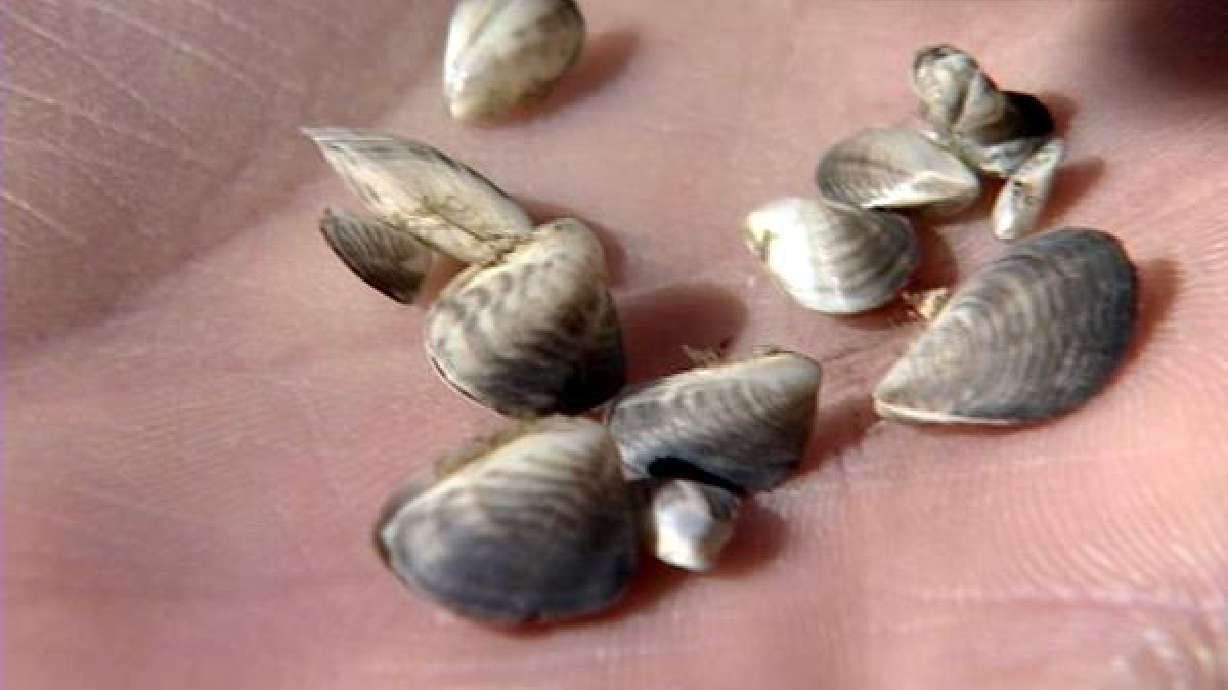Estimated read time: 2-3 minutes
This archived news story is available only for your personal, non-commercial use. Information in the story may be outdated or superseded by additional information. Reading or replaying the story in its archived form does not constitute a republication of the story.
ST. GEORGE — A weekend checkpoint conducted by a pair of state agencies found two out-of-state boats entering Utah had been used in quagga-infested waters of Nevada.
The surprise inspection May 13 at the port of entry just south of St. George was carried out jointly by the state Department of Transportation and state Division of Wildlife Resources as a proactive effort to keep Utah waters clean of the non-native invasive species.
Quagga mussels and their cousins, zebra mussels, cling to boats and other watercraft, clogging lines and causing an extreme amount of damage to water system infrastructure.
They reproduce rapidly, according to the wildlife agency, and compete with fish for food.
A year ago, a single quagga mussel was found in the waters of Sand Hollow Reservoir, but since then none have been detected due to an aggressive campaign mounted by the state agency and vigilance by Utah recreationers spraying off their boats.
The checkpoint is part of that ongoing effort to keep Utah waters free of the expensive pest. During the six-hour inspection, 20 boats and personal watercraft were surveyed for the clam-like animals.
The infested boats were pressure-sprayed with 140-degree water. Similar high pressure washers are available at lakes and reservoirs in southern Utah. At Sand Hollow — because of the one mussel found — all boats or watercraft that go into that water must be decontaminated before they can be launched elsewhere.
Lynn Chamberlain, the division's conservation outreach manager in Utah's southwest region, said the checkpoint went well and the division will continue to conduct periodic inspections.
"We did not actually find visual evidence of any mussels, but because the boats came out of the waters that were infested, legally they have to be decontaminated."
Chamberlain said the campaign to make sure the state doesn't have an infestation has been aggressive.
"The testing at Sand Hollow, for example, has been so intense, we are reasonably sure there is nothing else in there, and that is a good sign."
Boats can be decontaminated for free by the Division of Wildlife Resources or the agency also explains the process on their website.
Email:aodonoghue@ksl.com








